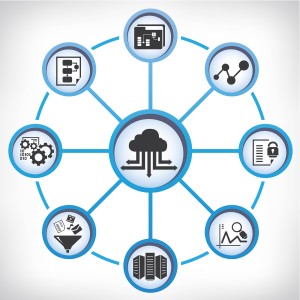 Big data. Two small words that, when combined, evoke sinister images. The fear of being spied upon. Communications monitored. Big Brother. The movie Minority Report.
Big data. Two small words that, when combined, evoke sinister images. The fear of being spied upon. Communications monitored. Big Brother. The movie Minority Report.
But is it only that? Is big data used solely by governmental agencies for spying?
Data has been in use for decades. Governments have not been the only ones using data; companies have used data to improve their performance through the use of written and telephone surveys. Big data, however, is a term that has come into use, owing to the advances in technology and the ongoing digitization of so much we use.
Today, big data is used in diverse ways – from improving sports performance to national security and local law enforcement, business performance and healthcare, and many other instances. Every ten years, the U.S. government engages in one of the biggest data collection practices, the U.S. Census, which provides demographics information and helps shape spending policies, among other pertinent uses.
Big data comprises innumerable – think billions and billions – records of people’s shopping habits tastes, interests, etc. that marketers use to inform them on how to better reach their target audience. Using this information, marketers can create better and more efficient marketing strategies, with the goal of also spending less.
In an increasingly digitized world in which consumers are interacting online, through their mobile devices, different social media platforms, big data allows marketers to understand their behavior, especially since many people can still prove to be elusive, switching how they communicate. Even everyone’s (sometimes) favorite, Facebook, gathers data on users to enhance its platform.
In one simple illustration of how big data is used, when you go to the supermarket and upon paying for your groceries, the back of your receipt is printed with similar items you may be interested in purchasing the next time you are food shopping.
In another way of how big data can be used, after initial treatment, hospitals can monitor elderly patients in their homes and sending out caregivers to provide treatment when needed, without having those patients come to the hospital.
Big data can also help develop better engagement policies between doctors and patients. According to PricewaterhouseCoopers, 59% of physicians and insurers believe that mobile health applications will play a huge part in the physician-patient relationship. Healthcare marketers will undoubtedly use this information to better engage the patients of the doctors they work for.
Is big data something we should be afraid of? No. But because the ability exists to gather so much personal information, we can and should be concerned. However, big data has many positive benefits that benefit businesses, consumers and even government.


